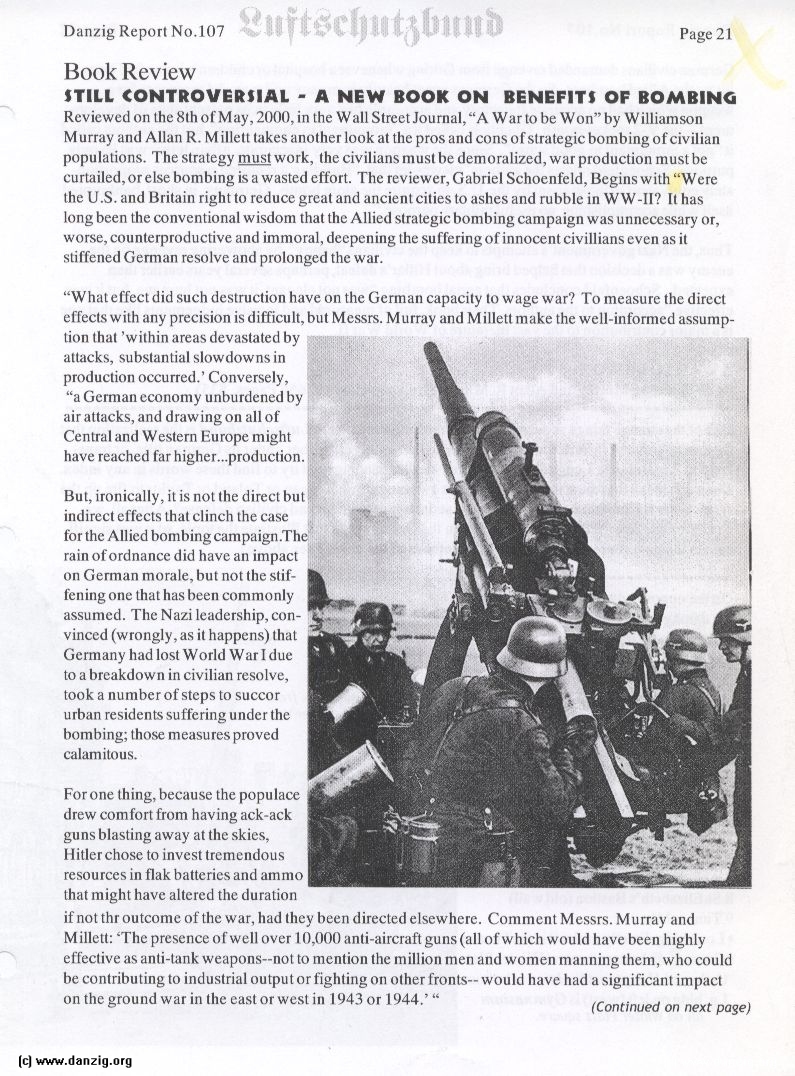
Book Review
STILL CONTROVERSIAL - A NEW BOOK ON BENEFITS OF BOMBING
Reviewed on the 8th of May, 2000, in the Wall Street Journal, “A War to be Won” by Williamson Murray and Allan R. M ilkU takes another look at the pros and COflS of strategic bombing of civilian populations. The strategy must work, the civilians must be demoralized, war production must he curtailed, or else bombing is a wasted effort. The reviewer, Gabriel Schoenfeld, Begins with “Were the U.S. and Britain right to reduce great and ancient cities to ashes and rubble in WW -TI? It has long been the conventional wisdom that the Allied strategic bombing campaign was unnecessary or, worse, counterproductive and immoral, deepening the suffering of innocent civillians even as it stiffened German resolve and prolonged the war.
“What effect did such destruction have on the German capacity to wage war? To measure the direct effecis with any precision is difficult, but Messrs. Murray and Millett make the well-informed assumpt ion that ‘within areas devastated by attacks, substantial slowdowns in production occurred.’ Conversely, “a German economy unburdened by air attacks, and drawing on all of Central and Western luropc might have reached far higher...production.:
But, ironically, it is not the direct but indirect effects that clinch the case for the Allied bombing campaign .The rain of ordnance did have an impact on German morale, but not the stiffening one that has been commonly assumed. The Nazi leadership. convinced (wrongly, as it happens) that Germany had lost World War! due to a breakdown in civilian resolve, took a number of steps to succor urban residents suffering under the bombing; those measures proved calamitous.
For one thing, because the populace drew comfort from having ack-ack guns blasting away at the skies, If Hitler chose to invest tremendous resources in flak batteries and ammo that might have altered the duration if not thr outcome of the war, had they been directed elsewhere. Comment Messrs. Murray and Millett: ‘The presence of well over I 0,0(M) anti-aircraft guns(all of which would have been highly effective as anti-tank weapons--not to mention the million men and women manning them, who could be contributing to industrial output or fighting on other fronts-- would have had a significant impact on the ground war in the east or west in 1943 or 1944.’”
Danzig Report Vol. 1 - Nr. 107 - April - May - June - 2000, Page 22.
Hits: 2932
Added: 28/07/2015
Copyright: 2024 Danzig.org

